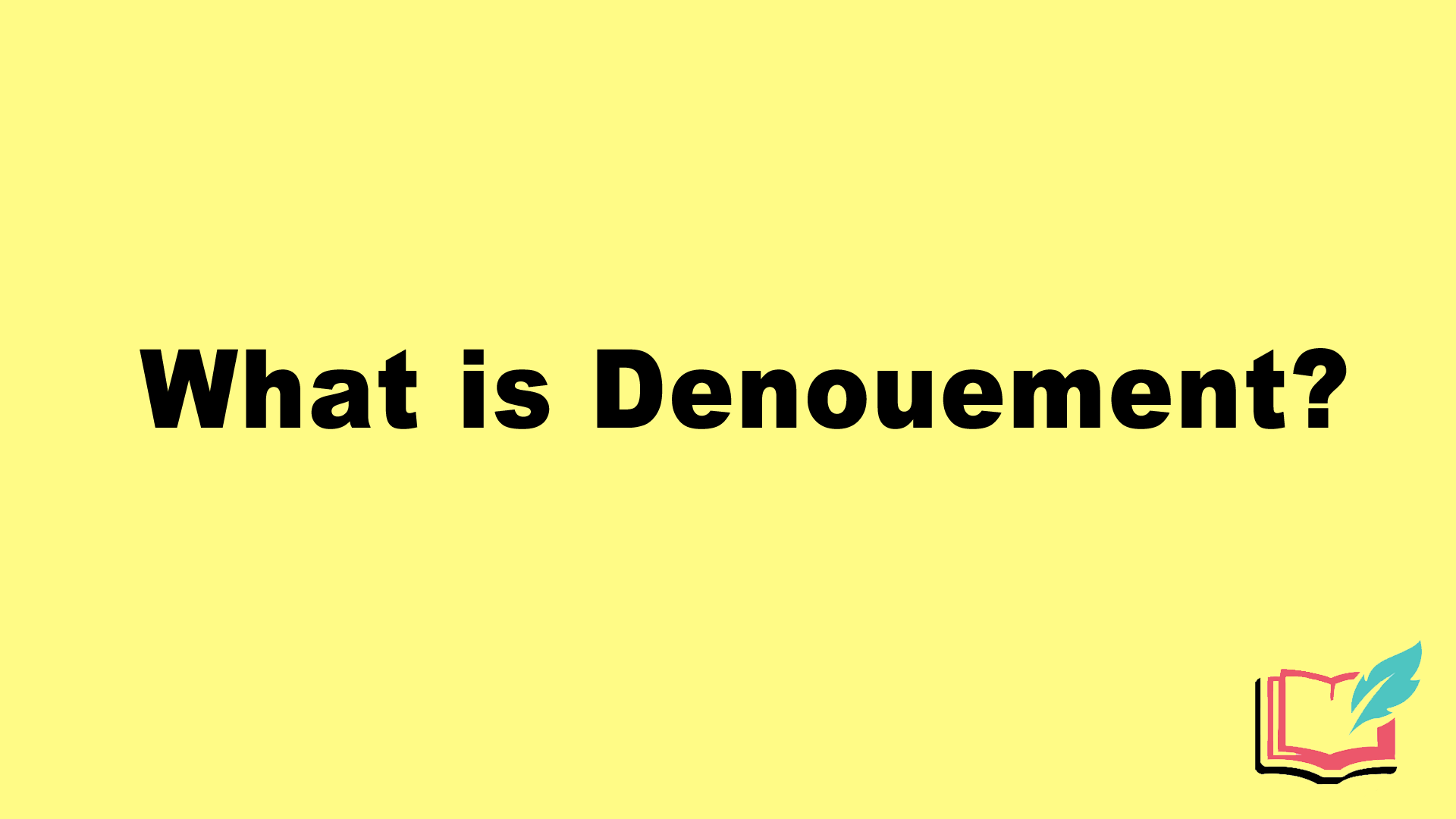
Denouement is defined as the resolution of conflict in a narrative plot structure. It occurs at the end of a story, after the climax, and serves to resolve plot lines. Denouement comes from the French word denoue, which means “to untie.”
What is a Denouement?
Denouement occurs at the very end of a story, usually in the final chapter or epilogue. It is the point in a story where all plotlines are tied up and any remaining conflicts or questions are resolved. It happens after the climax and shows the aftermath, giving the reader an idea about what will come next even though it will not be written in the story.
In William Shakespeare’s Romeo and Juliet, denouement occurs after the tragic climax of the story and the audience finds out that the feuding families have chosen to end their fighting in honor of their children’s memories and so that no further tragedies will result:
CAPULET:
“O brother Montague, give me thy hand.
This is my daughter’s jointure, for no more
Can I demand…”
MONTAGUE:
“But I can give thee more,
For I will raise her statue in pure gold,
That whiles Verona by that name is known…
As that of true and faithful Juliet…”
CAPULET:
“As rich shall Romeo’s by his lady’s lie,
Poor sacrifices of our enmity…”
PRINCE:
“A glooming peace this morning with it brings.
The sun, for sorrow, will not show his head…”
Current Examples of Denouement
A common phrase that is considered a denouement would be: “…and they all lived happily ever after.” This phrase comes from fairy tales with happy endings but has become a conversational phrase in everyday language.
In stand-up comedy, denouement is a useful tool to tie up any loose-ends in the performance. Usually comedians will save their funniest jokes for last (the climax of the performance) and afterwards will deliver a line that caps off the entire performance by circling back around to any repeated or major jokes. This completes the performance and leaves the audience feeling satisfied with a conclusion.
In video games, it is common to experience a cut-scene after completing a major task or beating a difficult level. This will generally feature your character triumphing in battle or discovering satisfying information that provides a sense of resolve.
The Importance of Denouement in Literature
Denouement is the point of final resolution in a literary piece. It wraps up plot lines after the main climax of the story. Denouement allows the audience to experience the emotions that come with the resolution of conflicts and clears up any final loose ends. With a skillful denouement, the audience will feel satisfied and have a natural sense that their time with that story has ended.
A poorly written or absent denouement can completely destroy a story’s ability to resonate beyond the fact that readers do not have a feeling of ending and completeness. Denouement also gives a story its final chance to emphasize important themes. Without resolution and reinforcement of important symbols and themes, a story will fall flat in the end. Denouement controls how the audience is going to feel at the completion of a story which will affect their outlook on the story as a whole.
Denouement Examples in Literature
In J.R. Tolkien’s The Lord of the Rings series, the denouement is delayed. The major climax of the series happens with the destruction of the Ring and the death of the evil Sauron. The hobbits return home to the Shire and at this point, readers anticipate the denouement to occur.
However, when the Hobbits return home, one last battle occurs so that the hobbits can reclaim their lives. At this point, readers see the denouement in the form of psychologically wounded Frodo leaving Middle Earth on a hopeful journey while the rest of the hobbits live happily ever after in the Shire.
At the end of the Harry Potter series by J.K. Rowling, the denouement cleverly occurs in two parts. The first includes a meeting between Harry and Dumbledore in a dream-world. This first part wraps up a few loose ends before the final battle occurs. The second part to the denouement is seen in the epilogue as readers get to see Harry and Ginny along with Ron and Hermione sending their children off to Hogwarts. Their future careers are reveals and readers know that the evil has never returned to harm them.
Recap: What is Denouement in Literature?
Denouement is the point in a story’s plot where loose ends are tied up to plot lines and conflicts are resolved. Denouement gives readers a sense of completion and satisfaction as themes and major symbols are emphasized one last time and a natural feeling that the story has ended symbols to the audience that the story is over.
In Moby Dick by Herman Melville, themes of vengeance and madness lead to a dark denouement in which the ship and everyone aboard are destroyed:
- “Ahab and his crew died, but the ocean didn’t care: the ocean was here long before human beings, and will be here long after we are gone.”
